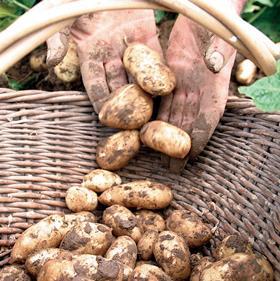
Fresh produce protected name products such as Jersey Royal potatoes and Fenland celery should maintain their protected status post-Brexit as long as the UK reciprocates the deal for EU products.
According to the latest AHDB Horizon report, which examines the potential impact of Brexit on industry products with Protected Geographical Indication (PGI),Defra recognises the benefits of protecting traditional and geographical food products and will seek to protect this following Brexit.
The study analysed how leaving the EU will impact the UK’s ability to categorise foodstuffs under the three existing EU PGI schemes. The schemes exist to allow producers to differentiate their produce and improve competitiveness and profitability.
Kathy Roussel, head of AHDB Brussels office and co-author of the Horizon report, said: “Defra recognises the benefits of protecting traditional and geographical food products and has confirmed that this protection will remain while the UK is a member of the EU.
'A team is also in place to look at how best to protect these products post-Brexit. When the UK leaves the EU, registered protected food names should be able to benefit from EU protection against imitation, provided there is a reciprocal agreement between the UK and the EU.”
Currently, the UK has 61 registered PGI products with 17 applications in progress. The number of registered products is relatively low compared to other European countries according to the AHDB.
Once a product has been registered at a European level it is given protection against imitation throughout the EU. It can take up to four years for the name to be legally protected but once approved, it is granted indefinitely.
Producers from countries outside of the EU must already have a protected status on their product in their home country. The UK would therefore need to set up its own national approval scheme before producers could apply to the European Commission.



